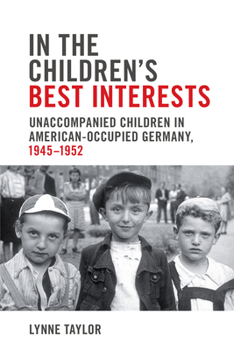In the Children's Best Interests: Unaccompanied Children in American-Occupied Germany, 1945-1952
Among the hundreds of thousands of displaced persons in Germany at the end of World War II, approximately 40,000 were unaccompanied children. These children, of every age and nationality, were without parents or legal guardians and many were without clear identities. This situation posed serious practical, legal, ethical, and political problems for the agencies responsible for their care.
In the Children's Best Interests, by Lynne Taylor, is the first work to delve deeply into the records of the United Nations Relief and Rehabilitation Administration (UNRRA) and the International Refugee Organization (IRO) and reveal the heated battles that erupted amongst the various entities (military, governments, and NGOs) responsible for their care and disposition. The bitter debates focused on such issues as whether a child could be adopted, what to do with illegitimate and abandoned children, and who could assume the role of guardian. The inconclusive nationality of these children meant they became pawns in the battle between East and West during the Cold War. Taylor's exploration and insight into the debates around national identity and the privilege of citizenship challenges our understanding of nationality in the postwar period.Format:Paperback
Language:English
ISBN:1487521944
ISBN13:9781487521943
Release Date:November 2017
Publisher:University of Toronto Press
Length:480 Pages
Weight:1.60 lbs.
Dimensions:1.1" x 6.0" x 9.0"
Grade Range:Postsecondary and higher
Customer Reviews
0 rating





